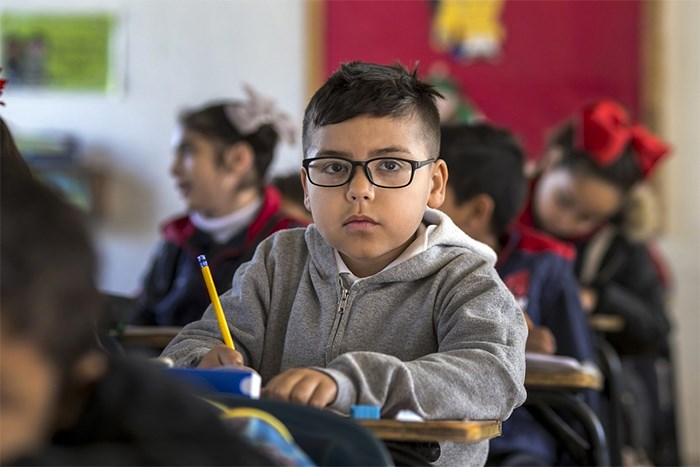
Some fascinating numbers about schools in B.C. were quietly released on Friday by the provincial government.
The most disappointing and surprising stats show the number of classes in B.C. with more than three students with special needs went up this year, despite the teachers’ court win, which restored rules about class size and makeup.
More in line with expectations is the revelation that the number of classes with seven or more special needs students has dropped significantly.
And in the purely good news department, average class sizes are down and the number of classes with more than 30 students has been cut nearly in half since the court restored the old rules.
B.C. Teachers’ Federation president Glen Hansman says the numbers show the power of collective agreements in creating smaller classes for students.
“While the current government, the NDP, has been announcing positive projects, like seismic upgrading and school construction, they haven’t put more operating funding in other than what is needed to implement the restored language,” Hansman said. “Not a cent more has come into the system.”
The information was posted to Data BC on Friday. There are provincial standards for class size, but there are no provincial rules about the number of special needs students that can be in any one class and about 20 of the province’s 60 districts do not have their own rules.
Education Minister Rob Fleming was not available Friday for an interview, however the Ministry of Education said in part the numbers are due to an increase in the number of students with special needs in the system and more students being diagnosed with special needs.
“We believe in inclusive education and that all students should have equitable access to learning opportunities,” the ministry said in a statement. “We are looking at how we support students with diverse learning needs as part of our current review of the public education funding formula.”
That review could bring in significant changes to how schools are funded, in particular how money is allocated for students with special needs. Recommendations are expected by late summer, with implementation expected by the 2019-20 school year.
The Supreme Court decision and an increase in enrolment resulted in 4,000 more classes throughout the province. In Vancouver alone, there are 550 more classes this year than last, despite the number of students going down.
Across the province, the average kindergarten has 17.8 students, down from 19.1 last year, while the average Grade 1 to 3 classroom has 19.4 students, down from 20.4 students last year. The average Grade 4 to 7 classroom has 23.3 students, down from 24.5 and the average Grade 8 to 12 class has 22 students, down from 22.9.
There are 17,466 classes with more than three special needs students, an increase of about 150 classes from last year, a record high year. To put that in perspective, in 2006-07, 14 per cent of all classes had four or more students with special needs. Today, 23 per cent of classes have four or more students with special needs.
There are 3,474 classes with seven or more students with special needs, which is down from 4,186 classes last year, a significant drop of nearly 20 per cent.
In Vancouver, where the contract places limits on the number of special needs students who can be in a class, 663 classes have seven or more students with special needs and 1,817 classes have four or more such students. There are 9,000 classes in Vancouver, so fully one-fifth of them have four or more students with special needs.
The numbers are slightly improved In Vancouver from last year, when there were 770 classes with seven or more students with special needs and 1,965 classes with four or more students with special needs.
But a shortage of teachers in B.C. has meant that non-enrolling teachers who normally work with students with special needs are often called in to cover for classroom teachers who are away sick.
A survey done by the Vancouver Elementary School Teachers Association shows that thousands of hours of service to students have been lost because of this practice, VESTA president Chloe McKnight said at a recent public meeting about the Vancouver School Board budget.
“We’ve heard over and over again from our members that this is the hardest year they’ve experienced,” McKnight said.
Hansman is hopeful that this year, with an elected board and a new, permanent superintendent, the situation in Vancouver will improve.
I’m sure students, parents and teachers hope so too.
Tracy Sherlock writes about education and social issues. She can be reached at [email protected]


